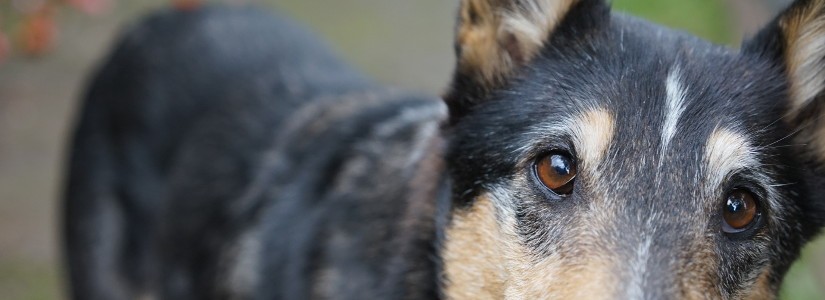Every so often I hear complaints about the amount of money people spend on their dogs or other companion animals. There seems to be a moral objection to the idea that animals receive so much of our disposable income and a suggestion that the money should go towards “worthier” targets, for example less fortunate humans who suffer from poverty, disease and other hardships in this world. But is this a valid argument?
What we spend money on
There is no better tool to address emotional arguments than statistics*, so let’s start there. The numbers tell us that Australians spend around $20 billion a year on beauty products and personal care, another $20 billion on recreation and around $10 billion on gadgets. We certainly value alcohol and gambling (between $15 and $20 billion a year each) and our spending on coffee and sweets easily exceeds donations to charity. Australian households also waste a lot. A possible $8 billion of food is thrown away per annum, not counting the wastage from restaurants and other businesses. In comparison we spend approximately $5 billion a year on pets. This includes everything – food and health care, pet products and accessories, services such as grooming, boarding and training – and all pets – from dogs and cats to fish and reptiles.
It feels wrong to compare expenditure on luxury items and entertainment to the money we spend on our animal companions. But since pets are legally nothing more than property, they get bundled together with hair straighteners, golf clubs and flat screen TVs. Even then, it would make more sense to criticise our exorbitant spending on non-essential beauty and lifestyle products before we bemoan the cost of animal care or even pet pampering, whatever that may mean.
But there is something else wrong with criticizing spending money on our animal companions. It implies that those people who do not have pets or spend less money on them are more charitable than others. Clearly this is not the case. If someone puts their house up for sale to pay for their dog’s medical bills, it is highly doubtful they would have done the same to give money to charity. People spend their money whichever way they like. No matter if someone collects vintage cars, enjoys going to restaurants or loves their dog, we simply cannot draw any conclusions about how much or how little they give to charity.
Life has no price tag
It is an impossible task to estimate the value of life. We can assume that a life is most important to the individual who lives it, but it also matters to others. How much it matters is fluent. It is evident that even human life is not valued evenly across the globe and throughout history. In war-torn and poverty stricken countries a life can end quickly and without fanfare. Sometimes one life is less important than family or community and sometimes a life is sacrificed for a greater cause or goal. And while “developed” countries may rate individual life very highly, we are also willing to send young men and women into war if we deem necessary. Life has no objective value. It simply cannot be measured in monetary or even ethical terms. The value of a single life is a subjective experience and can only be qualified by the individual themselves and everyone around them.
As a society we tend to value human life above all other. This does not mean that every human being values every single human life over that of every other animal. Just ask yourself: Would you save your dog’s life over that of a sadistic psychopathic serial killer, if you ever found yourself in the unfortunate position to have to make that decision? Would you run into a burning house to save your dog, risking your own life? Neither worldly laws nor spiritual beliefs can answer these questions for us.
More than just a dog
The recent story of a young man who committed suicide after authorities killed his dog shows just how much non-human animals can mean to us. The psychological and emotional benefits of pets have been sufficiently proven but we also need to acknowledge that humans can genuinely form close bonds with members of other species. There doesn’t have to be a measurable benefit to us in order to justify spending money on our pets. It’s ok if it simply makes us happy.
Not everyone may understand the emotional attachment that is possible between species. A few years ago Dusty, a young kelpie from Queensland, tested positive for Hendra virus antibodies and was euthanized for bio-security reasons. While his distressed family pleaded for their beloved dog’s life, a nearby farmer – apparently wanting to help – offered to “replace” the kelpie. This type of thinking puts dogs on the same level as a tractor. The dog is a replaceable utility, not a unique individual whose family have come to know and love him. But every animal – dog, human or other – is unique and so are the relationships they form with others.
People who get emotionally attached and spend significant money on their dogs are sometimes accused of treating them like children. The only thing wrong with that is when the animals suffer from being anthropomorphised and subjected to unrealistic expectations by their humans. Otherwise, the kindness of people should be applauded, especially if we consider that around 250,000 abandoned, neglected and abused dogs and cats are killed each year in Australian animal shelters. Empathy does not stop at species boundaries, meaning that people who are kind to animals are also likely to be kind to humans. We can never have enough of those people!
Like everyone else I have my private thoughts about what type of expenses I find reasonable (not just in relation to pets) and which I classify as extravagant. But it is not for me to decide what other people should spend their money on. As a dog trainer I want to see happy, healthy dogs, so my focus is on training and behaviour as well as health care and good nutrition. Any expenses in these categories are important to not just keep the animal alive but to give them a life worth living.
However, if someone wants to express their love for their dog with a diamond studded collar, it’s entirely their business. This is no different to buying jewellery for a human loved one (except that the dog couldn’t care less of course!). Nobody really needs these items but it clearly means something to people. Before I pass – my purely personal – judgement on anyone, I try and remind myself that the big spender might also be a big philanthropist.
* The numbers are neither exact nor current but are meant as ballpark figures only.
RESOURCES
Australian spending habits, ASIC, MoneySmart
We’re getting more charitable, but the gambling bug still bites, Nortons, Business Advisers & Chartered Accountants
Australians are world-leading gamblers, but the house’s winnings are slipping, Business Spectator
Do Australians waste $8 billion worth of edible food each year?, ABC Fact Check
He Had The Wrong Dog In The Wrong Country And When They Killed It He Killed Himself, 3MillionDogs
Empathy and Compassion: The Awesome Sauce, Jason Powers in Huffington Post
Dusty the red kelpie – Hendra Virus, Barristers Animal Welfare Panel
 Copyright secured by Digiprove © 2015 Sylvie Martin
Copyright secured by Digiprove © 2015 Sylvie Martin 
